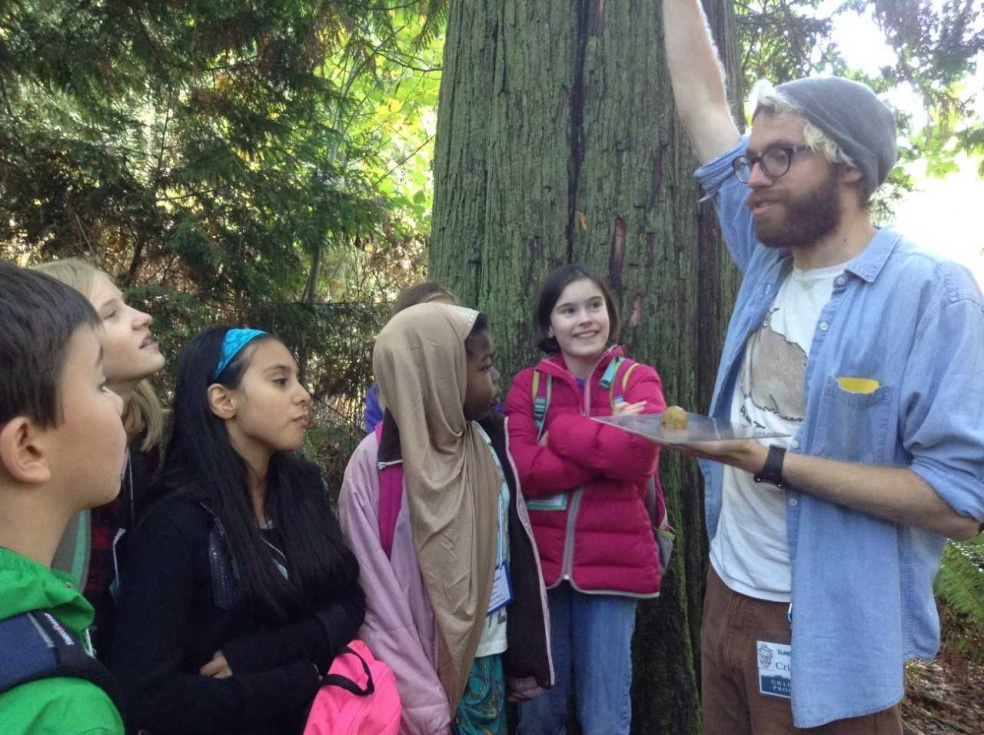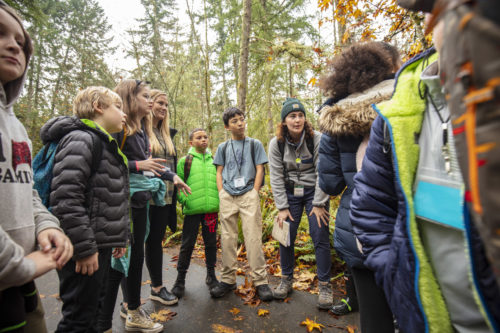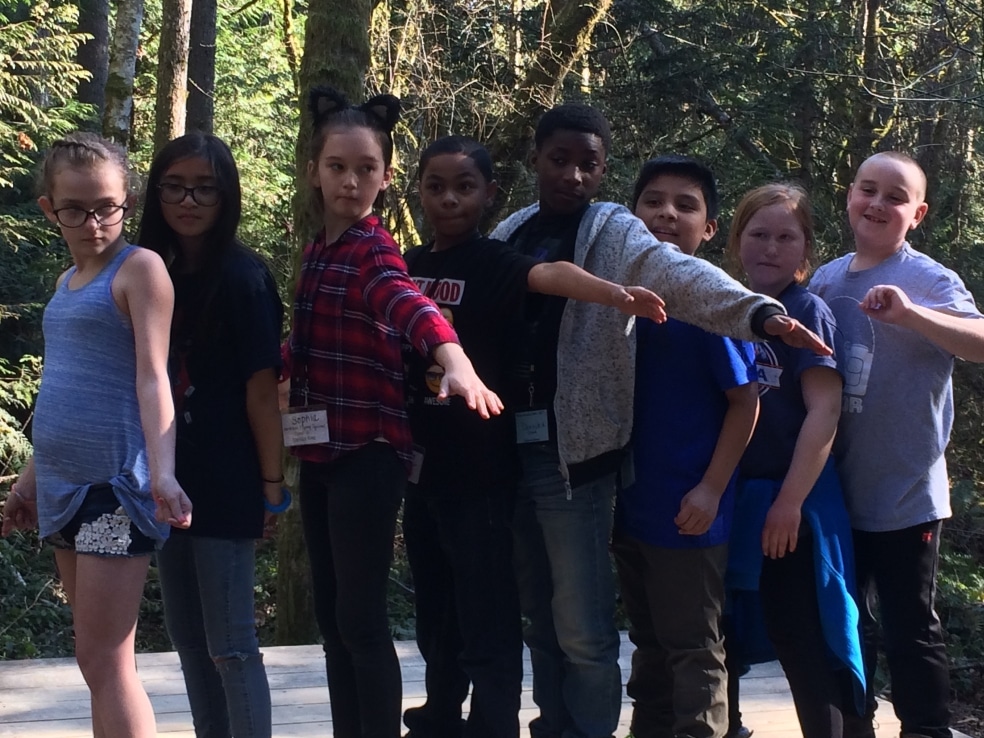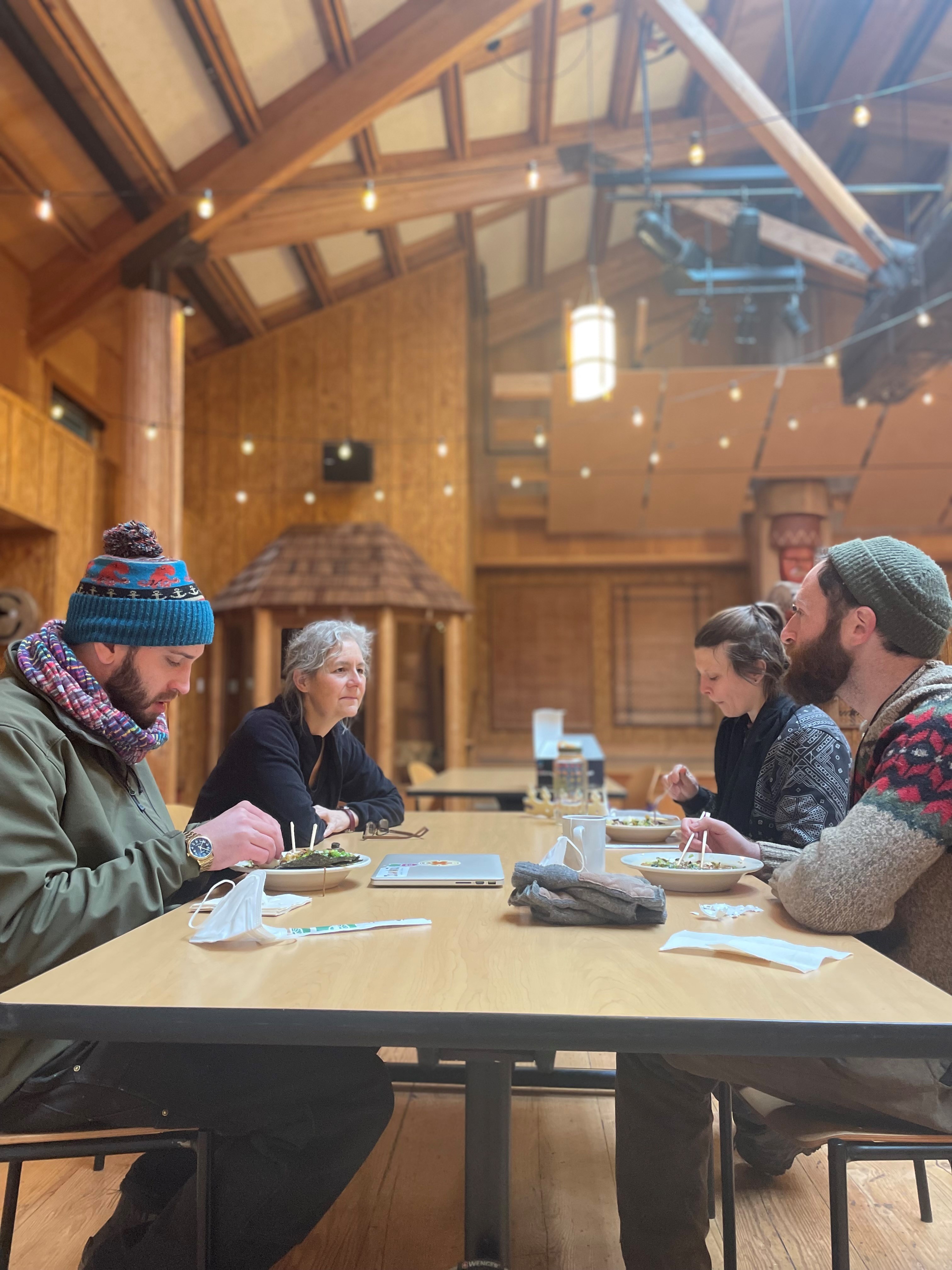As the COVID-19 crisis continues, it’s become increasingly clear that the entire field of environmental…
Author: Criqui
Christopher Criqui is a 2017 alum of IslandWood’s Graduate Program in Education for Environment and Community. Today, he works as a Staff Instructor with our School Overnight Program and supervises the Staff Instructor Team. We caught up with Criqui, who goes by his last name, to hear about his decision to enroll at IslandWood and how the program has influenced his professional path and teaching practice.
What drew you to the IslandWood graduate program?
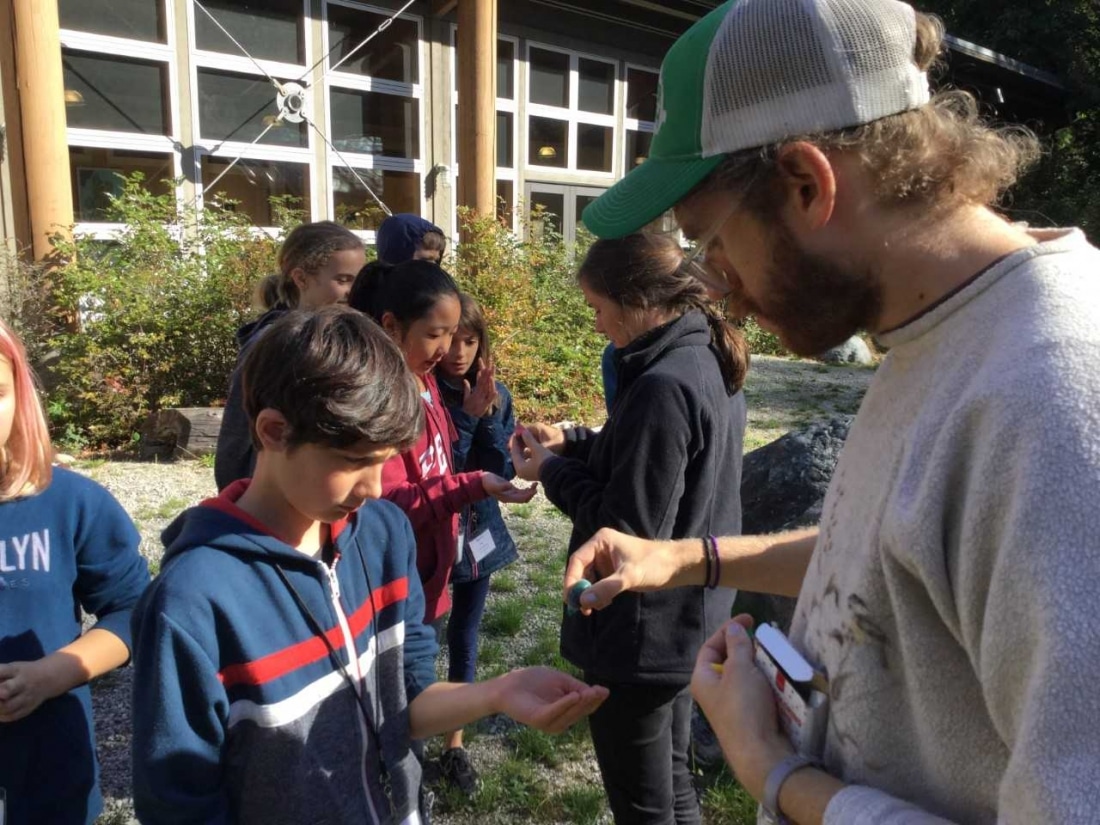
Criqui hands a School Overnight Program student an item outside.
The IslandWood program combines so many of the things that I am passionate about—nature, working with kids, social justice.
I was born and raised in a small town. However, at the time that I was researching graduate programs, I was living in Seattle—my first time living in a city. Although urban life was incredibly transformative, I wanted to go somewhere a bit smaller. Settling just across the Sound to a cabin in the woods felt like the perfect move for me.
What were you hoping to gain from the program when you decided to enroll?
Before enrolling as a grad at IslandWood, I worked as a tutor for two years in Federal Way Public Schools through AmeriCorps. As my second term of service was ending, I needed a next step. IslandWood seemed like a good opportunity to get more training as an educator (I’ve been teaching ever since I graduated from college).
Did it influence your career goals? How?
Absolutely. Because of my time in this program I now know that I want to work with youth, I want to work with educators, and I want to work outside. IslandWood provided me with ample experience incorporating human culture into lessons revolving around nature. My undergraduate degree is in community development, so I care deeply about how communities form, change, and interact. My work here has deepened my understanding of the profound connections between human communities and the non-human communities that we coexist with. Such insight has been instrumental in my search for work that fulfills my desire to help children understand these interconnections and inspire them to steward the environment and advocate for their communities.
Most of your peers went on to pursue their master’s. Why did you decide not to follow that path?
I really, truly did plan on earning my Master in Teaching (MIT), but life kept providing me other opportunities that didn’t necessitate an advanced degree. After I was awarded my IslandWood certificate, I worked as an environmental educator in China for a season. Upon returning to the US, IslandWood offered me a full-time position as a Staff Instructor.
My desire to get my MIT is rooted in the fact that I would love to get to know a class of students over a year-long period. With my current position I am able to do so, just with a class of IslandWood graduate students instead of children. I know that I can always go finish my master’s if I feel the need to, but at this point in time, I like what I am doing, and it feels like going back to school would be too disruptive.
What do you do now in your current role?
Currently I am the Senior Staff Instructor at IslandWood. In this position I serve as the supervisor of the Staff Instructor Team, and I teach in the School Overnight Program whenever we have unusually large weeks or there is a need for a substitute. I’ve also had the opportunity to work with other Education Team members on projects that I care deeply about, such as training the grad students in gender identity and evaluating our practices and language to ensure that we are being culturally responsive and not culturally appropriative. I really feel like I have say in the direction that this organization is moving.
What skills and experiences acquired in the graduate program are most valuable to you in your work now?
Before coming to IslandWood, I thought a lot about social justice, as well as ways that living within a white supremacist patriarchy has influenced my view of the world and my view of myself. This program aided in my ability to further analyze all the ways that such systems have infiltrated academia, particularly how science is viewed and understood. Through my teaching I now try my hardest to recognize and uplift the multiple ways of knowing and understanding the natural world, especially if these ways conflict with traditional Western scientific methods. So many students from non-dominant communities are told that their way of viewing the world is not compatible with Western science, but there is space within science for everyone. Throughout my life I’ve loved learning about scientific processes and ways of thinking, but the way that it has been communicated to me was limited in scope and didn’t have much wiggle room for interdisciplinary approaches.
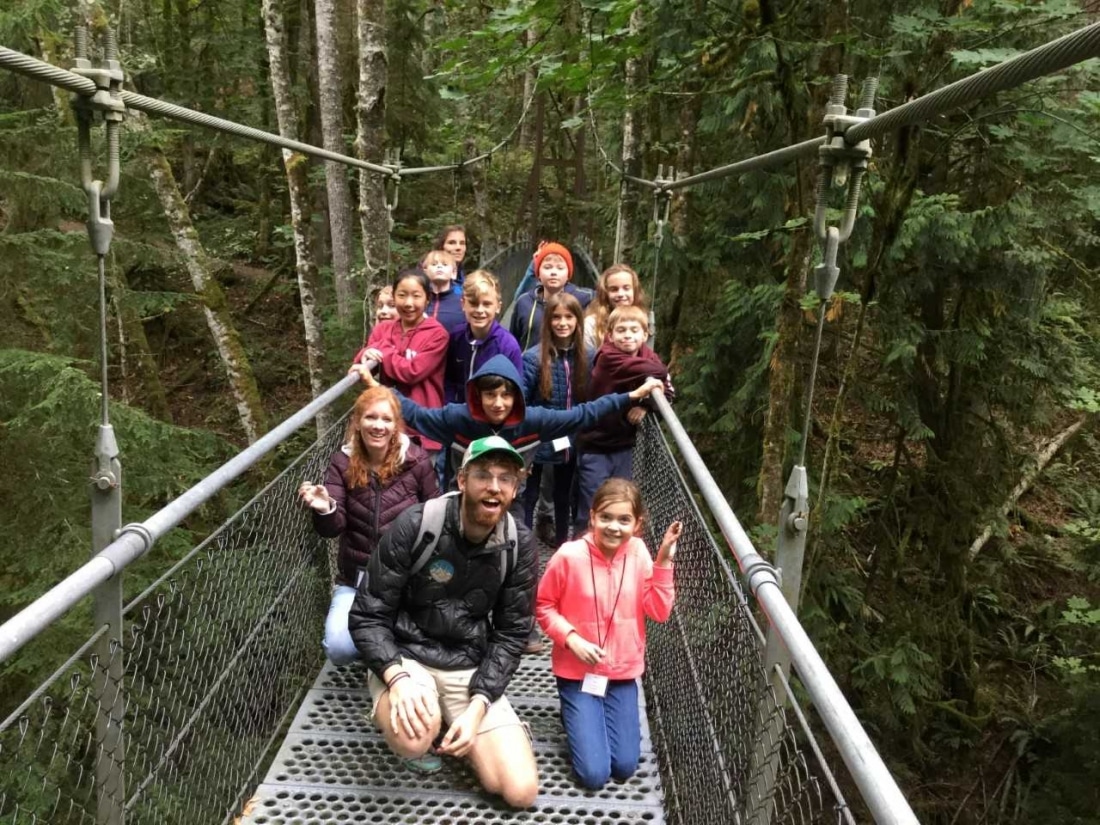
Criqui poses on the suspension bridge with a group of smiling School Overnight Program students.
What is motivating you most about your current job at IslandWood?
I am always growing and learning. Also I love getting to work with so many talented and burgeoning educators. The lessons they are teaching and the philosophies they bring to this place are inspiring.
How would you describe the value of the graduate certificate to a prospective student who may not want to pursue a master’s degree or already has a master’s?
This organization is doing some pretty amazing things with environmental education and has a reputation as such within the field. Because of this, organizations doing similar work highly value an IslandWood certificate. Personally, I care less about a piece of paper that says I did something and more about all the knowledge and skills that I’ve gained through my time here. Still, time and again, friends and colleagues have told me that this particular piece of paper stands out to employers.
Please note that this post was last updated on 1/3/2019. Some details, including job title or place of employment, may have changed since then.

